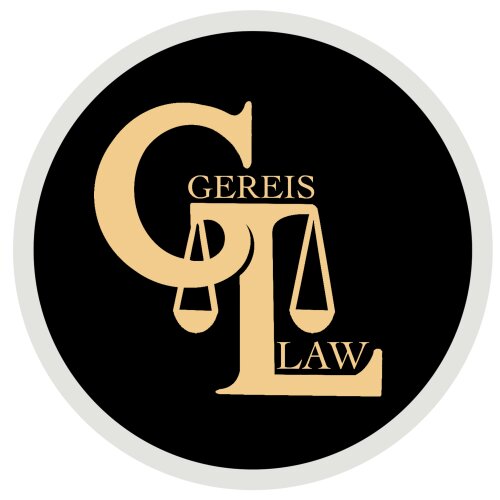Best Arrests & Searches Lawyers in Vermont
Share your needs with us, get contacted by law firms.
Free. Takes 2 min.
Or refine your search by selecting a city:
List of the best lawyers in Vermont, United States
About Arrests & Searches Law in Vermont, United States
Arrests and searches are critical aspects of the criminal justice process in Vermont, United States. These legal procedures are governed by both state and federal law, especially the Fourth Amendment to the United States Constitution, which protects individuals from unreasonable searches and seizures. Vermont law builds on these protections, setting specific standards for when law enforcement officers can stop, search, or arrest someone. Understanding your rights and responsibilities during such encounters is essential, as the outcomes can significantly impact your legal situation.
Why You May Need a Lawyer
There are many scenarios where legal help becomes crucial in arrests and searches. If you or a loved one has been arrested, subjected to a search, or faced with the possibility of criminal charges, an attorney can help protect your rights and explain your options. Some common situations where people may need a lawyer include:
- Being arrested or detained by law enforcement
- Experiencing a home, vehicle, or personal search by police
- Facing criminal charges based on the results of a search
- Believing your rights have been violated during an arrest or search
- Wanting to challenge the legality of evidence collected
- Dealing with warrants or understanding your obligations if approached by law enforcement
A skilled attorney can analyze the facts, challenge improper procedures, and advocate for your best interests throughout the process.
Local Laws Overview
Vermont law closely follows constitutional principles while providing unique statutory requirements for arrests and searches. Important points include:
- Search Warrants: Law enforcement typically must obtain a search warrant, supported by probable cause, to search a person, vehicle, or property. Exceptions exist, such as consent searches, exigent circumstances, or searches incident to an arrest.
- Arrest Procedures: Officers must have probable cause to arrest someone, whether for misdemeanors witnessed in person or as authorized by a warrant for felonies.
- Miranda Rights: If you are taken into custody and questioned, officers must inform you of your rights, including the right to remain silent and the right to an attorney.
- Stop and Frisk: Vermont officers may briefly detain and pat down a person if they have reasonable suspicion of criminal activity, but this is limited in scope.
- Suppression of Evidence: Evidence obtained through illegal searches or arrests may be excluded from use in court through a "motion to suppress."
These laws are nuanced, with specific exceptions and detailed rules. Consulting a Vermont criminal defense lawyer ensures you understand your rights and can mount an effective defense if needed.
Frequently Asked Questions
What should I do if I am stopped by the police in Vermont?
Remain calm and respectful. You have the right to ask if you are free to leave. If you are not under arrest, you may depart. Do not resist, argue, or interfere physically with officers.
Can the police search my vehicle without a warrant?
Generally, police need probable cause or consent to search your vehicle. However, there are several exceptions, such as evidence in plain view or if officers have reason to believe the vehicle contains evidence of a crime.
When do police need a warrant to search my home?
Police generally must have a search warrant to legally search your home unless you give consent, there are exigent circumstances, or they are in hot pursuit of a suspect.
What are my rights if I am arrested in Vermont?
You have the right to remain silent and the right to an attorney. Anything you say can be used against you in court. You also have the right to know the charges against you.
What is probable cause?
Probable cause means there is a reasonable basis to believe a crime has been committed and that a particular person is involved. It is required for arrests and search warrants.
Can I refuse consent to a search?
Yes, you can refuse consent to a search of your property or person. Clearly state your refusal, but do not physically resist.
What happens if evidence was illegally obtained?
Evidence collected in violation of your constitutional rights may be inadmissible in court. Your lawyer can file a motion to suppress such evidence.
Do I have to answer police questions?
You are not required to answer police questions beyond providing identification if asked. You may politely state that you wish to remain silent and request a lawyer.
What is a Miranda warning?
The Miranda warning informs you of your rights when in custody, including the right to remain silent and the right to an attorney. If officers fail to provide this warning, certain statements may not be admissible in court.
How quickly should I contact a lawyer after an arrest?
You should contact a lawyer as soon as possible. Early legal advice can protect your rights and help prevent self-incrimination.
Additional Resources
Here are some helpful resources for Vermont residents seeking guidance or support regarding arrests and searches:
- Vermont Defender General's Office: Provides public defense services for individuals facing criminal charges.
- Vermont Bar Association: Offers lawyer referrals and general legal information.
- Legal Services Vermont: Supplies legal resources and may assist with certain cases.
- Vermont State Police: Gives information about law enforcement procedures and rights during encounters.
- American Civil Liberties Union of Vermont: Advocates for civil liberties and offers educational resources on your rights during police interactions.
Next Steps
If you need legal help with an arrest or search in Vermont, act quickly to protect your rights. Here are suggested steps:
- Remain calm and avoid talking about your case until you have legal representation.
- Contact a qualified criminal defense attorney experienced with Vermont law as soon as possible.
- Document all details of your interaction with law enforcement, including dates, times, and names of officers.
- Gather any relevant paperwork such as warrants, citations, or property receipts.
- Request a consultation to discuss your case and obtain advice tailored to your circumstances.
Timely action is crucial. Seeking professional legal advice can help you assert your rights and achieve the best possible outcome in your case.
Lawzana helps you find the best lawyers and law firms in Vermont through a curated and pre-screened list of qualified legal professionals. Our platform offers rankings and detailed profiles of attorneys and law firms, allowing you to compare based on practice areas, including Arrests & Searches, experience, and client feedback.
Each profile includes a description of the firm's areas of practice, client reviews, team members and partners, year of establishment, spoken languages, office locations, contact information, social media presence, and any published articles or resources. Most firms on our platform speak English and are experienced in both local and international legal matters.
Get a quote from top-rated law firms in Vermont, United States — quickly, securely, and without unnecessary hassle.
Disclaimer:
The information provided on this page is for general informational purposes only and does not constitute legal advice. While we strive to ensure the accuracy and relevance of the content, legal information may change over time, and interpretations of the law can vary. You should always consult with a qualified legal professional for advice specific to your situation.
We disclaim all liability for actions taken or not taken based on the content of this page. If you believe any information is incorrect or outdated, please contact us, and we will review and update it where appropriate.
Browse arrests & searches law firms by city in Vermont
Refine your search by selecting a city.









